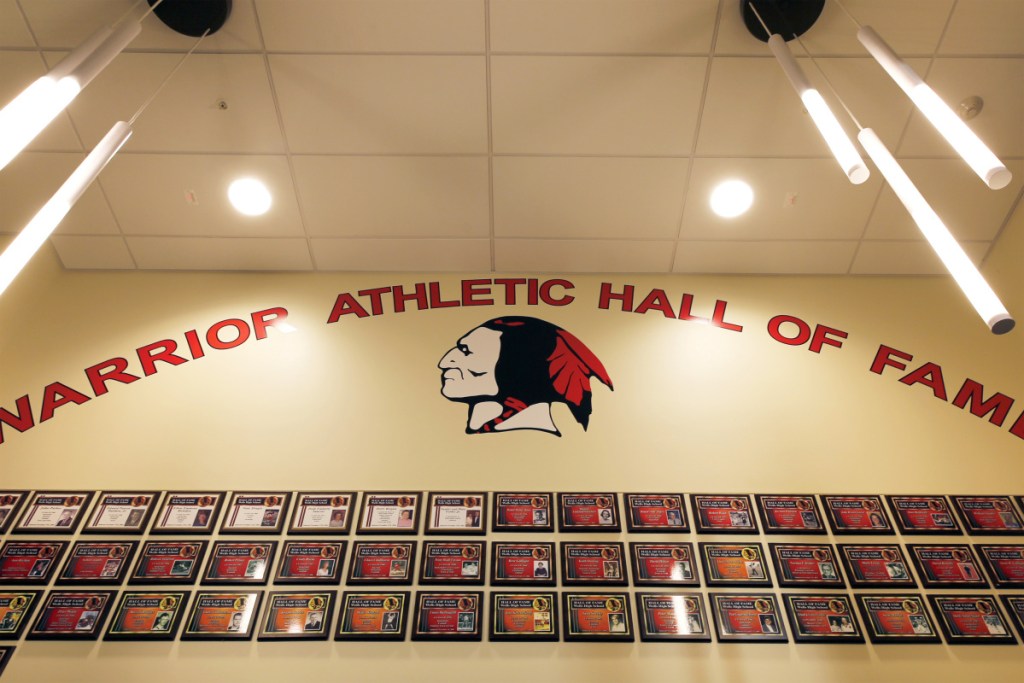All through the late 1990s and well into the 2000s, I was part of the growing national movement to get the Cleveland Indians to drop Chief Wahoo — perhaps, the most racist caricature in use in American society. Frustration with that effort, ultimately successful after many years, led me to more than a decade of trying to work to see that all such offensive nicknames and mascots end in my home state of Maine.
In 2010, as the author of “Baseball’s First Indian,” I partnered with longtime friend John Dieffenbacher-Krall, then executive director of the Maine Indian Tribal State Commission, to host a symposium on the issue of Maine school use of Native American nicknames and mascots. We helped coordinate the symposium at the Bangor Public Library, inviting representatives from all four tribes of the Wabanaki Alliance, representatives from schools that had recently ended the practice and, of course, superintendents and principals from all the schools still using such nicknames and mascots.
In preparation for this symposium, I had discovered the website American Indian Sports Teams Mascots (aistm.org), which posted articles on this issue from every state in the country. Even better, it maintains a map where you can go to each individual state and see a list of all the offending schools, the communities they represent and the nickname.
I was shocked and quite frankly disconsolate when I discovered that this site identified 34 offending schools in Maine. I determined to call every one of the schools on this list and see if any enlightenment was at hand.
I remember growing more and more excited as I completed call after call, ultimately reaching a wonderful “Wow!” moment when I’d called every single school on the list and discovered that there were, truly, a handful in the process of transitioning — and really only six schools that still deserved outright condemnation.
Today, sadly, I’m unaware of any fanfare, any recognition, that most of the 28 following communities and schools in Maine, especially the elementary and junior high schools, received for doing the right thing and changing their nicknames and mascots.
The vast majority of these were either “Indians” (16) or “Warriors” (six). There were a couple of “Braves,” just one “Chiefs,” and just one “Apaches.” There were four “Redskins” (both the junior high and high schools in Scarborough, plus Sanford High School and Wiscasset High School).
This honor roll includes: D.W Merritt Elementary School in Addison; Athens Elementary School; Mildred Day Memorial School, Arundel; Husson University, Bangor; Beals Elementary School; Blue Hill Consolidated School; Woodstock Elementary School, Bryant Pond; Columbia Falls Elementary School; Corinna Junior High School; Etna-Dixmont School; Fort Kent Community High School; Narragansett Primary School, Gorham; and Sugg Middle School, Lisbon.
Also: Joseph A. Leonard Middle School and Old Town High School, Old Town; Dirigo Elementary School, Peru; Sabattus Central School; Saint Albans Elementary School; Sanford Junior High School; Scarborough Junior High School and Scarborough High School; Pemetic Elementary School, Southwest Harbor; Strong Elementary School; Trenton Elementary School; A.D. Gray Junior High School, Waldoboro; Temple Academy, Waterville; and Wiscasset Primary School.
Some were already transitioning out of the nickname, but there were six schools that were not inclined to make any change at the time of our 2010 symposium.
They included Southern Aroostook High School in Island Falls, Nokomis High School in Newport, Sanford High School, Skowhegan Area High School, Wells High School and Wiscasset High School.
I suspect there are many unnamed Maine educators who are our real heroes on this issue, far more deserving of seeing their names in print than the intractable, racially insensitive individuals we see getting publicity, school board meeting after school board meeting.
I’ll single out one I learned about. I hope one day some journalist will care enough to investigate more.
It was Tim Doak, then principal at the Fort Kent Community High School, who stepped in showing compassion and leadership. One of his first acts was to see the “Indian head” on the gym floor removed. The school moved to a generic use of the nickname “Warriors.” Students were invited to participate in an art contest, with the winner focused upon a more modern interpretation, a “wounded warrior.”
Later, when Doak determined that this appeal to a more generic use of the term “Warriors” still meant “American Indian” to too many individuals in the school community, he pressed for further evolution of the process. Today, the school is represented by another student’s art work, and the symbol is the Spartan warrior.
Not surprisingly, Doak’s kind of leadership has been rewarded. Recently, as superintendent for Regional School Unit 39 (Caribou, Limestone and Stockholm), he was named Maine Superintendent of the Year for 2018.
So, to Doak and all the other enlightened leaders of Maine education on this issue: Thank you.
Ed Rice of Orono and St. Andrews, New Brunswick, is author of “Baseball’s First Indian, Louis Sockalexis: Penobscot Legend, Cleveland Indian” and director of a nonprofit organization dedicated to building a monument in Maine to Sockalexis. For more information, go to www.sockalexis.net.
Send questions/comments to the editors.



Comments are no longer available on this story